A Guide to Choosing the Top SEO Platform for B2B in 2025

Table of Contents
Finding affordable SEO tools that can help you boost your B2B website's performance can be a daunting task. Each SEO platform has its strengths, weaknesses, and unique features. How do you choose the right one for your business?
This post will look at affordable SEO tools, like the best SEO apps for Shopify, many of which include an AI article writer for SEO, to help you boost your store's Google rankings and attract qualified visitors in 2025.
What Makes an SEO Platform Ideal for B2B
.jpg) B2B SEO is fundamentally different from B2C, so an ideal B2B SEO platform would go far beyond basic keyword tracking. These platforms specialize in advanced keyword research for B2B.
B2B SEO is fundamentally different from B2C, so an ideal B2B SEO platform would go far beyond basic keyword tracking. These platforms specialize in advanced keyword research for B2B.
After all, B2B SEO hinges on targeting particular, often low-volume keywords that align with the nuanced needs of business buyers. Unlike consumer markets, where broad, high-traffic keywords may suffice, B2B marketers must uncover search terms that reflect the intent of professionals seeking solutions, not just information.
This focus on intent-driven keywords is critical: As First Page Sage notes, the ability to identify and prioritize bottom-of-funnel keywords is a key differentiator for B2B SEO success. In a landscape where 71% of B2B buyers start their research with a generic search (according to Google), advanced keyword research tools are indispensable for capturing attention at every buyer journey stage.
Competitor Analysis and Content Gap Identification
In the crowded world of B2B, knowing what your competitors are ranking for and where your content is falling short is essential for building authority and capturing market share. Content gap analysis is compelling for B2B because it highlights areas where your site can fill unmet needs or answer questions that competitors aren’t addressing.
As SalesHive points out, platforms that automate competitor monitoring and deliver actionable insights enable B2B teams to adapt quickly to changing search trends and algorithm updates. This agility is crucial in industries where new technologies, regulations, or market shifts can rapidly alter buyers' desires. By regularly benchmarking and identifying gaps, B2B marketers ensure their content strategy remains relevant and competitive.
Backlink Tracking and Authority Building
Backlinks remain a cornerstone of SEO, and in B2B, they’re essential for establishing trust and authority in specialized industries. Google’s E-E-A-T (Experience, Expertise, Authoritativeness, Trustworthiness) guidelines place a premium on credible, authoritative sources, making robust backlink analysis essential.
Effective backlink tracking supports rankings and uncovers new business development opportunities by highlighting industry influencers and potential collaborators. In B2B, where relationships and reputation matter, having a clear view of your backlink landscape is vital for both SEO and broader marketing goals.
Reporting Automation and Performance Analytics
B2B marketers often have to justify SEO investments to multiple stakeholders, from sales to the C-suite. This makes automated reporting and performance analytics a must. Integration with Google Analytics 4 allows for seamless tracking of user journeys and attribution of leads to specific SEO efforts.
Computerized dashboards and scheduled reports ensure everyone, from marketing to leadership, stays informed about progress and priorities without manual data wrangling. Real-time SEO scoring and predictive analytics, increasingly powered by AI, are emerging as essential features for agile, data-driven B2B teams. These tools help marketers quickly identify what’s working, forecast future trends, and pivot strategies as needed. In a sector where sales cycles are long and touchpoints are many, the ability to demonstrate ROI and align SEO with business outcomes is critical for sustained investment and support.
Integration with B2B CRMs and Marketing Tools
For B2B organizations, SEO doesn’t exist in a vacuum- it must connect with broader marketing and sales systems to drive real business results. This connectivity enables marketers to directly tie keyword and content performance to lead generation, pipeline development, and revenue outcomes.
Closed-loop reporting becomes possible when SEO data flows directly into CRM and marketing platforms, allowing for accurate attribution and continuous improvement. In complex B2B buyer journeys, this integration ensures that no opportunity is missed and that marketing efforts always move the needle on business objectives.
AI-Driven Content Creation and Optimization
AI is revolutionizing B2B SEO by automating content generation, optimization, and even ideation. Teams can quickly adapt to new product launches, industry shifts, or emerging trends without sacrificing quality or relevance.
According to Altitude Marketing, AI-driven content and predictive analytics are among the top trends shaping B2B SEO 2025. By leveraging AI, B2B marketers can stay ahead of competitors, respond faster to market changes, and maintain a steady flow of high-quality, optimized content that drives traffic and conversions.
Enhanced User Experience and Technical SEO
B2B buyers expect fast, seamless digital experiences, and technical SEO is foundational to meeting those expectations. With Google’s Core Web Vitals now a ranking factor, platforms that audit and optimize site speed, interactivity, and visual stability are indispensable for B2B marketers.
Regular technical audits ensure that even large, complex B2B websites remain healthy and accessible. These tools also help spot orphaned pages, enforce best practices across thousands of resources, and maintain a site structure that supports both users and search engines in B2B, where a single broken link can mean a lost deal, Technical SEO tools are not just a luxury but a necessity.
Related Reading
How to Choose the Best SEO Platform for Your B2B Needs
.jpg) 1. Set a Realistic Budget and Weigh the ROI
1. Set a Realistic Budget and Weigh the ROI
Before exploring B2B SEO platforms, create a budget. SEO tool pricing can vary dramatically: entry-level platforms like Mangools start at $49/month, while more comprehensive solutions such as SEMrush, Moz Pro, and Ahrefs typically begin at $99–$119/month and can increase with additional features or user licenses.
Beyond the monthly subscription, consider the broader investment in SEO, including the potential for increased organic leads, higher search visibility, and time saved through automation. Don’t focus solely on cost; weigh each platform’s price against the tangible business outcomes it can deliver. The most effective SEO tools balance robust features, actionable reporting, and ease of use. Setting a defined monthly or annual ceiling will help narrow your options and ensure your investment aligns with your growth goals.
2. Match Platform Complexity to Your Team’s Size and Skill
Your marketing team’s size and technical expertise should be central to your platform selection. For smaller teams or those new to SEO, user-friendly tools like Moz Pro and Mangools are often preferred for their intuitive interfaces and accessible learning curves. These platforms streamline onboarding and make it easier for non-specialists to get started.
If your organization has a larger marketing department or dedicated SEO professionals, advanced platforms like SEMrush and Ahrefs provide deeper analytics, greater customization, and collaborative features that support complex campaigns and multiple users. Choosing a platform that matches your team’s experience ensures faster adoption and better results. If you anticipate growth, look for solutions accommodating more users and evolving workflows.
3. Ensure Seamless Integration with Your Tech Stack
A top-tier B2B SEO platform should integrate smoothly with your existing technology ecosystem. This includes CRMs like Salesforce or HubSpot, marketing automation tools, and content management systems like WordPress or Shopify.
Seamless integration enables you to connect SEO insights directly to lead generation, sales pipeline metrics, and broader marketing efforts. Before committing, list your current marketing, sales, and analytics tools. Confirm that your shortlisted SEO platforms offer direct integrations with these systems. This step prevents data silos and maximizes the value of your SEO investment by linking it to business outcomes.
4. Prioritize Reporting and Analytics That Drive Decisions
For B2B marketers, demonstrating the impact of SEO to leadership and sales teams is non-negotiable. Look for platforms that provide customizable dashboards, automated reporting, and deep analytics. Integration with Google Analytics 4 and Search Console is crucial for comprehensive performance tracking and attribution.
Automated and shareable reports save significant time and keep all stakeholders aligned on progress. Identify the key metrics that matter most to your business, such as keyword rankings, organic conversions, and backlink growth. Ensure the platform can automate and export these reports for seamless organizational communication.
5. Evaluate Features and Scalability for Tomorrow’s Needs
The best B2B SEO platforms offer advanced features beyond basic keyword tracking, such as competitor analysis, backlink monitoring, technical audits, and content optimization tools. As your business grows, you may need more seats, deeper analytics, or additional integrations.
Choose a platform that is regularly updated and can scale alongside your organization. List your current and anticipated SEO requirements, and research the platform’s update history and customer support reputation. This ensures your investment remains relevant and valuable as your business evolves.
6. Test with Free Trials and Demo Accounts
Most reputable SEO platforms offer free trials or demo accounts, allowing you to experience their features before committing. Use these opportunities to assess the platform’s usability, integration, and reporting capabilities in real-world scenarios.
Run actual campaigns or audits during your trial to see how well the platform fits your workflow and meets your business needs. This hands-on approach minimizes risk and ensures you choose a platform that delivers on its promises.
7. Consult Reviews, Case Studies, and Industry Rankings
Before finalizing your decision, consult independent reviews on G2, Capterra, and industry roundups from sources like:
SEO.AI
Callin.io
Beehiiv Blog
Look for testimonials and case studies from businesses like yours to gauge real-world performance and customer satisfaction. This research provides valuable context and helps you avoid common pitfalls, ensuring your chosen platform is reliable and effective.
Top 10 SEO Platforms for B2B in 2025
1. SEMrush: The All-In-One SEO Platform for B2B
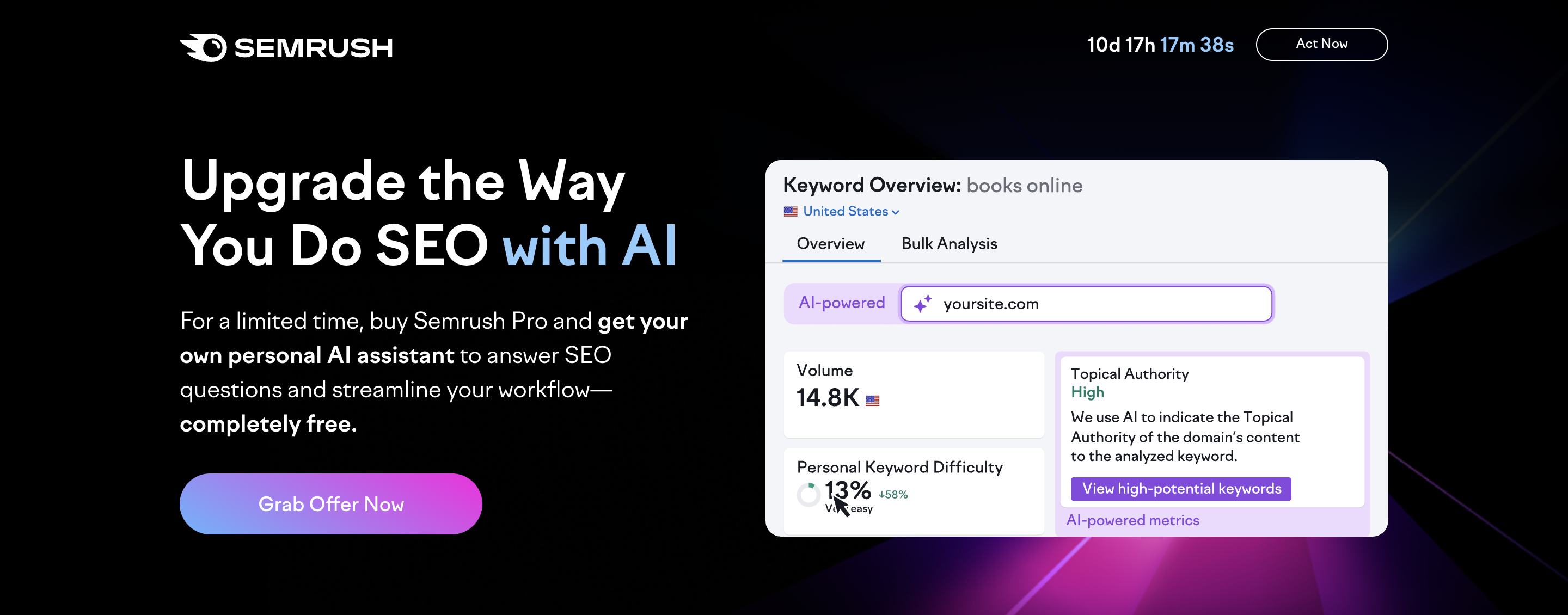 SEMrush is renowned for its all-in-one suite covering keyword research, competitive analysis, technical SEO, and even paid media. Its domain vs. domain comparison and position tracking are invaluable for B2B marketers targeting niche, long-tail keywords and monitoring multiple competitors.
SEMrush is renowned for its all-in-one suite covering keyword research, competitive analysis, technical SEO, and even paid media. Its domain vs. domain comparison and position tracking are invaluable for B2B marketers targeting niche, long-tail keywords and monitoring multiple competitors.
Users on G2 praise its depth, with one noting, “SEMrush gives us a 360-degree view of our SEO and paid campaigns in one dashboard.” The platform’s frequent updates and reliable support make it a top choice for B2B teams.
Features:
Comprehensive keyword research and tracking
In-depth competitor analysis
Site audit and technical SEO tools
Content marketing toolkit
PPC
Social media management integration
Pros:
All-in-one platform for SEO
PPC
Content
Regularly updated database
Excellent reporting and visualization
Strong competitor benchmarking
Extensive integrations (GA4, GSC, etc.)
Cons:
Higher price point for full features
Steep learning curve for beginners
Some tools may be overwhelming for small teams
2. Ahrefs: The King of Backlinks
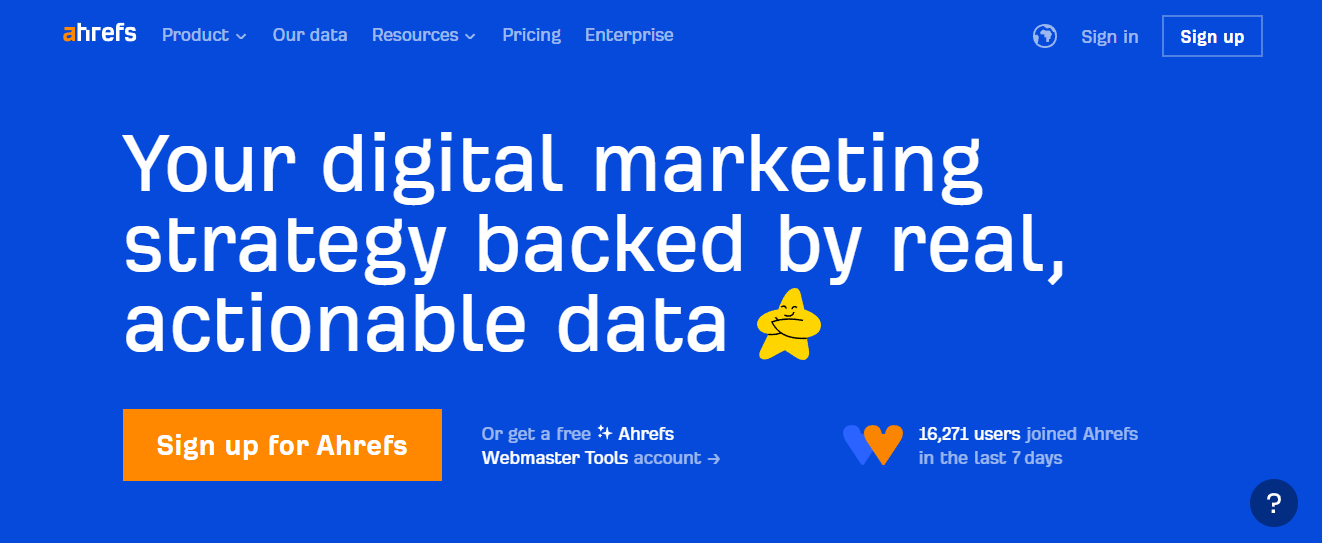 Ahrefs excels in backlink analysis, content gap identification, and keyword tracking. Its Site Explorer and Content Explorer are favorites among B2B SEOs for uncovering high-authority linking opportunities and tracking organic performance.
Ahrefs excels in backlink analysis, content gap identification, and keyword tracking. Its Site Explorer and Content Explorer are favorites among B2B SEOs for uncovering high-authority linking opportunities and tracking organic performance.
Content Mavericks states, “Ahrefs is indispensable for B2B brands needing to outrank established competitors.” Positive user feedback frequently highlights its clear interface and robust reporting tools.
Features:
Industry-leading backlink analysis
Keyword Explorer with global/local data
Site Explorer for competitor research
Content Gap and Rank Tracker tools
Site Audit for technical issues
Pros:
Best-in-class backlink database
Accurate keyword data
Intuitive interface
Fast, actionable insights
Great competitor research
Cons:
No free trial
Limited integrations compared to SEMrush
Lacks built-in PPC tools
3. Moz Pro: A B2B Staple
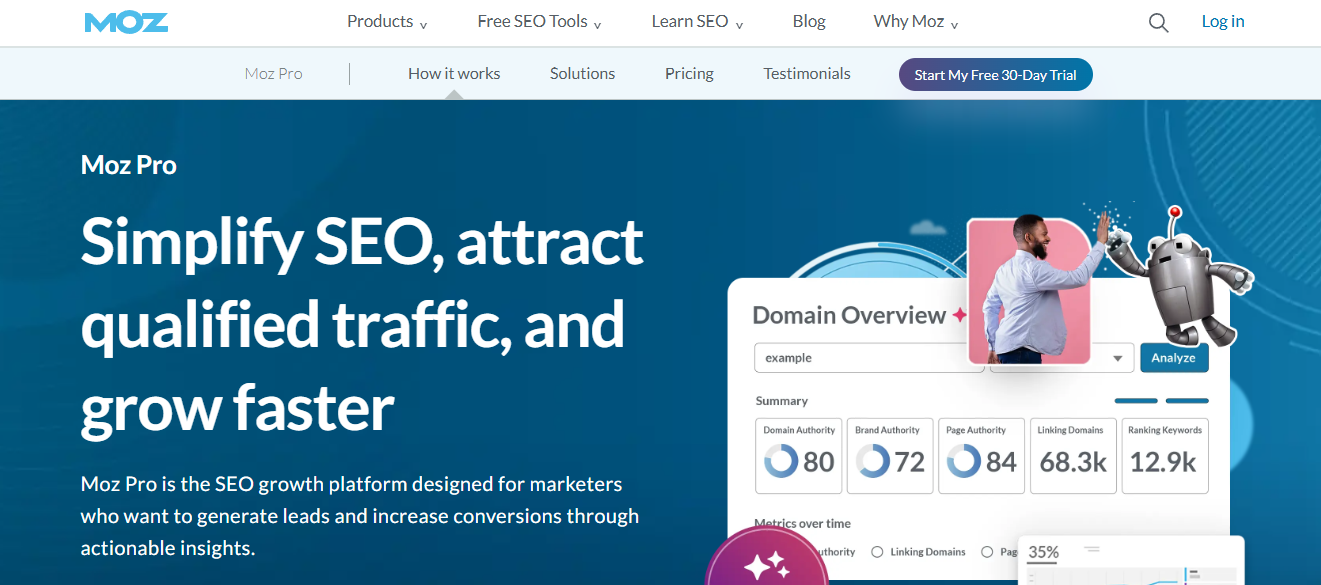 Moz Pro is known for its intuitive interface and trusted metrics like Domain Authority (DA) and Page Optimization Score. The platform’s keyword explorer and site crawl features are beneficial for B2B marketers managing large, complex websites. Users appreciate Moz’s actionable on-page suggestions and the Link Intersect tool for finding new backlink prospects.
Moz Pro is known for its intuitive interface and trusted metrics like Domain Authority (DA) and Page Optimization Score. The platform’s keyword explorer and site crawl features are beneficial for B2B marketers managing large, complex websites. Users appreciate Moz’s actionable on-page suggestions and the Link Intersect tool for finding new backlink prospects.
Features:
Keyword Explorer
Site crawl and audit
Domain Authority/Page Authority metrics
On-page optimization suggestions
Link Intersect and tracking
Pros:
User-friendly dashboard
Trusted SEO metrics
Excellent customer support
Actionable on-page recommendations
Regular educational resources
Cons:
Slower database updates than competitors
Limited international data
Some features are less advanced than SEMrush/Ahrefs
4. Mangools: Affordable and User-Friendly
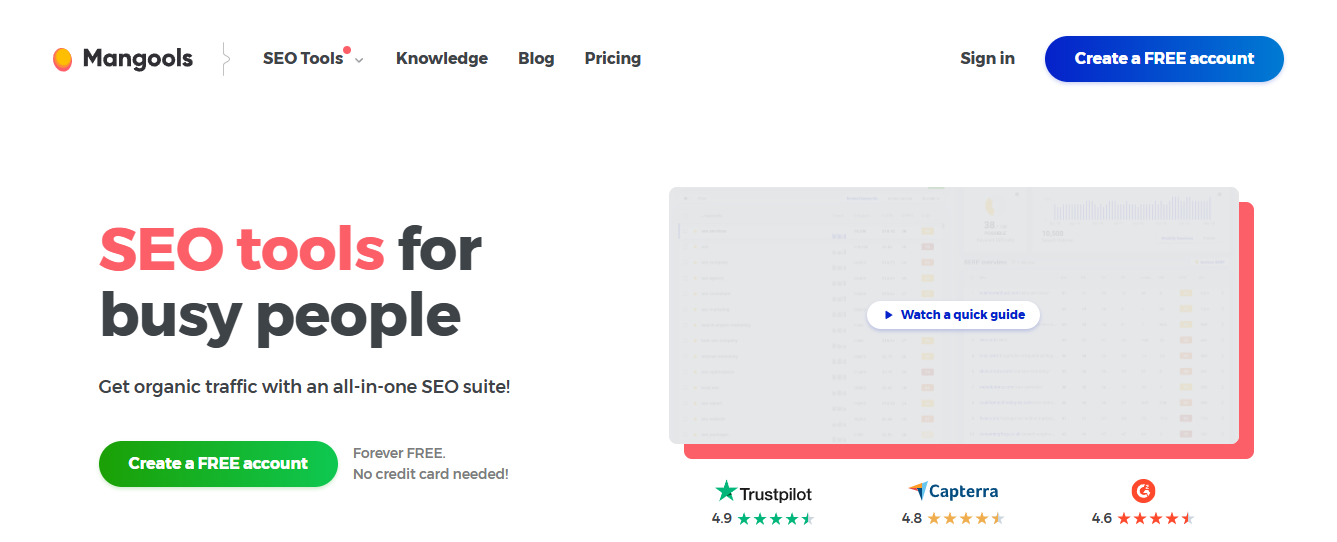 Mangools stands out for its affordability and user-friendly design. Its suite includes KWFinder for keyword research, SERPChecker for local analysis, and LinkMiner for backlink tracking.
Mangools stands out for its affordability and user-friendly design. Its suite includes KWFinder for keyword research, SERPChecker for local analysis, and LinkMiner for backlink tracking.
B2B marketers love Mangools for its quick insights and easy onboarding. One Capterra review states, “Mangools is perfect for small B2B teams who need powerful tools without a steep learning curve.”
Features:
KWFinder for keyword research
SERPChecker for SERP analysis
LinkMiner for backlink analysis
SERPWatcher for rank tracking
SiteProfiler for domain insights
Pros:
Affordable pricing
Clean, intuitive interface
Fast onboarding
Great for local SEO
Visual, easy-to-understand reports
Cons:
Limited advanced features
Smaller backlink database
Not ideal for large enterprises
5. SEO.AI: AI-Driven SEO Solutions
 SEO.AI leverages artificial intelligence to automate keyword research, content optimization, and reporting. Its integration with Google Search Console and AI-driven recommendations make it a rising star for B2B companies seeking to scale content and stay ahead of algorithm changes. Users highlight its ability to generate SEO-friendly content rapidly and its seamless workflow integrations.
SEO.AI leverages artificial intelligence to automate keyword research, content optimization, and reporting. Its integration with Google Search Console and AI-driven recommendations make it a rising star for B2B companies seeking to scale content and stay ahead of algorithm changes. Users highlight its ability to generate SEO-friendly content rapidly and its seamless workflow integrations.
Features:
AI-driven content creation
Automated keyword research
Content optimization suggestions
Integration with CMS and GSC
Real-time SEO scoring
Pros:
Speeds up content production
Smart keyword/topic recommendations
Easy integration with workflows
Useful for scaling content
Good value for AI capabilities
Cons:
Still maturing compared to legacy tools
May require manual review for content quality
Limited technical SEO features
6. Screaming Frog: The Technical SEO Auditing Tool
 Screaming Frog SEO Spider is the go-to solution for technical SEO audits. It excels at crawling large B2B sites, identifying broken links, duplicate content, and orphan pages. Integration with Google Analytics and Search Console adds depth to its reporting, making it a staple for agencies and in-house teams alike.
Screaming Frog SEO Spider is the go-to solution for technical SEO audits. It excels at crawling large B2B sites, identifying broken links, duplicate content, and orphan pages. Integration with Google Analytics and Search Console adds depth to its reporting, making it a staple for agencies and in-house teams alike.
Features:
Comprehensive site crawling
Broken link and duplicate content detection
Custom extraction and audit
Integration with GA and GSC
XML sitemap generation
Pros:
Unmatched technical
SEO auditing
Handles large sites efficiently
Flexible crawl customization
One-time annual fee
Regular updates
Cons:
Desktop-based, not cloud
Steeper learning curve
Limited keyword/content features
7. BuzzSumo: Content Marketing Insights
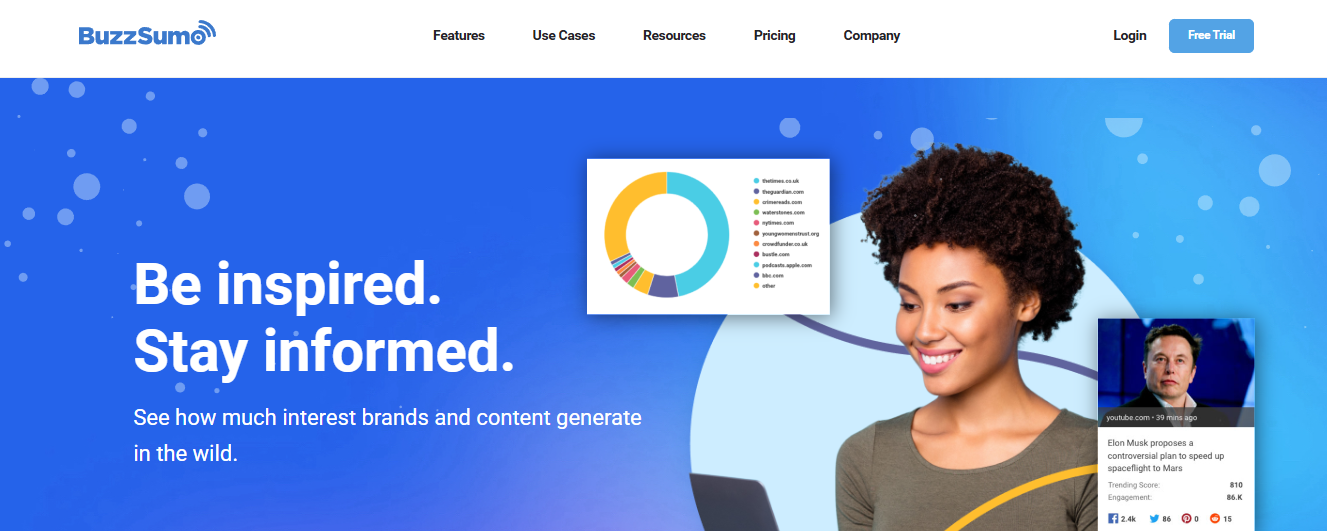 BuzzSumo specializes in content insights and influencer analytics, helping B2B marketers identify trending topics and key industry voices. Its ability to analyze content performance across platforms is invaluable for content-driven B2B strategies.
BuzzSumo specializes in content insights and influencer analytics, helping B2B marketers identify trending topics and key industry voices. Its ability to analyze content performance across platforms is invaluable for content-driven B2B strategies.
Features:
Content discovery and analysis
Influencer identification
Social engagement tracking
Competitor content alerts
Trend monitoring
Pros:
Excellent for content strategy
Identifies top-performing topics
Useful influencer insights
Great for PR and outreach
Easy-to-use interface
Cons:
Limited technical SEO tools
Pricey for full access
Data sometimes lags real-time
8. SpyFu: SEO and PPC Competitive Research
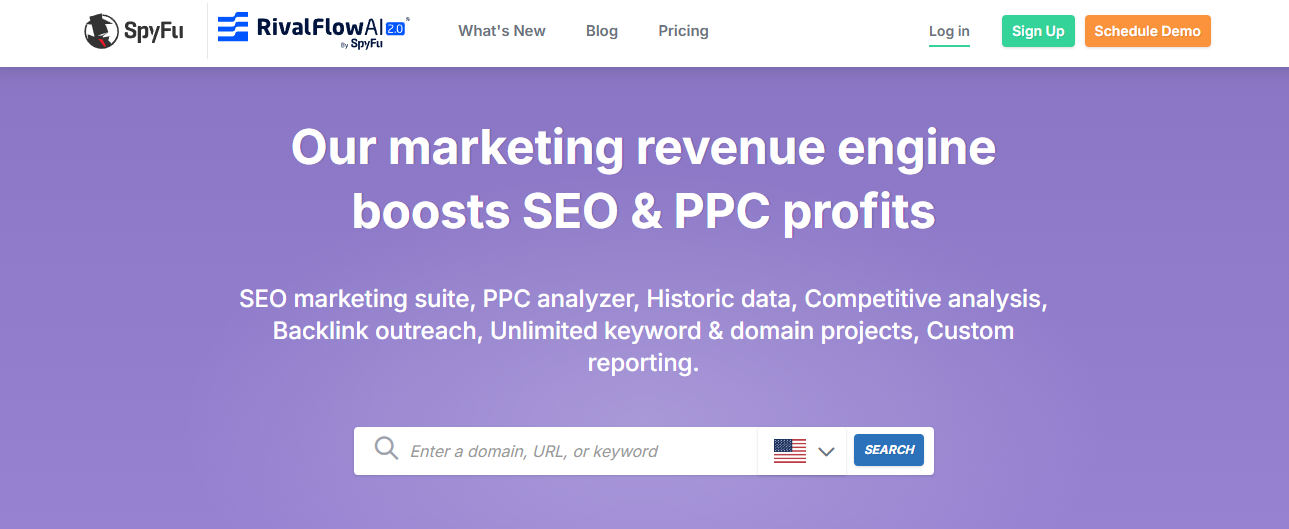 SpyFu is a favorite for competitive PPC and SEO research. It offers detailed insights into competitors’ keywords, ad copy, and backlink strategies. Its affordability and straightforward reporting make it accessible for smaller B2B teams.
SpyFu is a favorite for competitive PPC and SEO research. It offers detailed insights into competitors’ keywords, ad copy, and backlink strategies. Its affordability and straightforward reporting make it accessible for smaller B2B teams.
Features:
Competitor keyword research
PPC and SEO ad history
SERP analysis
Backlink tracking
Domain comparison
Pros:
Affordable plans
Deep competitor insights
Useful for both SEO and PPC
Historical data on keywords/ads
Simple reporting
Cons:
UI is less modern than others
Limited technical SEO tools
Smaller backlink database
9. Jasper: AI Content Generation
 Jasper uses AI to streamline content creation, offering SEO-optimized templates and automated writing tools. B2B marketers use Jasper to scale blog production and maintain content quality across multiple campaigns.
Jasper uses AI to streamline content creation, offering SEO-optimized templates and automated writing tools. B2B marketers use Jasper to scale blog production and maintain content quality across multiple campaigns.
Features:
AI-powered content generation
SEO-optimized templates
Team collaboration tools
Plagiarism checker
Custom brand voice settings
Pros:
Rapid content creation
Consistent brand voice
Easy for teams to use
Good for scaling blog output
Integrates with Surfer SEO
Cons:
Not a full SEO suite
Requires human editing
Subscription cost adds up
10. Yoast SEO: The Leading WordPress SEO Plugin
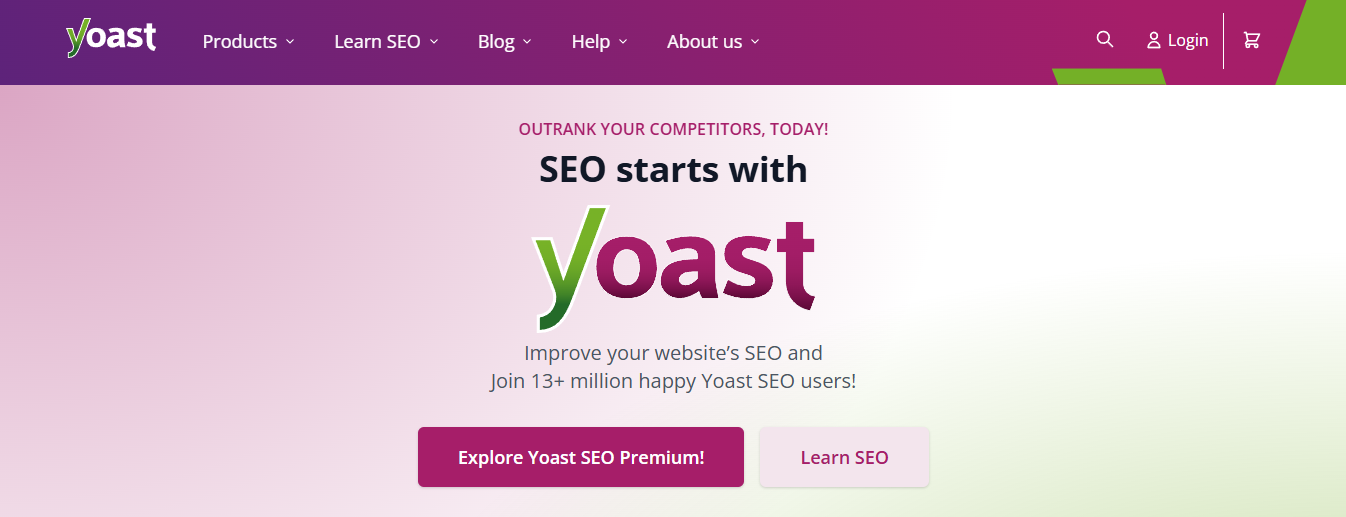 Yoast is a staple for WordPress users, providing on-page optimization, readability checks, and schema markup in an easy-to-use plugin. It’s ideal for B2B companies managing their own websites and looking for quick, actionable SEO improvements.
Yoast is a staple for WordPress users, providing on-page optimization, readability checks, and schema markup in an easy-to-use plugin. It’s ideal for B2B companies managing their own websites and looking for quick, actionable SEO improvements.
Features:
On-page SEO analysis
Readability checks
Schema markup automation
XML sitemap management
WordPress integration
Pros:
Essential for WordPress users
Easy to install and use
Real-time on-page feedback
Regular updates
Free and premium options
Cons:
Limited to WordPress
Not a full SEO platform
Lacks advanced analytics.
Related Reading
How Arvow Impacts B2B SEO
.jpg) 1. Automated Content Creation that Simplifies B2B SEO
1. Automated Content Creation that Simplifies B2B SEO
Journalist AI leverages sophisticated algorithms to automatically produce SEO-friendly articles from keywords, titles, or business overviews. This ensures every piece is crafted with search engine requirements in mind, covering aspects like keyword optimization, semantic richness, and user readability, without manual editing.
For B2B marketers, this means they can ramp up content creation efficiently, delivering detailed, authoritative resources on complex subjects. The automation extends to embedding SEO fundamentals such as linking strategies, structured layouts, and multimedia elements, which are essential for ranking and engagement.
2. Contextual and Intent-Based Writing
Unlike basic AI writers who simply insert keywords, journalistic AI interprets the intent and context behind each topic. It tailors content to address the specific questions and pain points of B2B audiences, from technical specialists to C-suite executives.
This ensures the material is optimized for search, genuinely valuable, and actionable, supporting every stage of the B2B buying cycle.
3. Flexible Customization and User Control
The platform gives marketers detailed control over content structure, including setting outlines, headings, tone, and regional targeting. This adaptability is crucial for B2B companies operating across various industries or geographies, ensuring each piece aligns with brand voice and campaign objectives while resonating with targeted audiences.
4. Bulk Content Generation and Automated Publishing
Journalist AI’s batch processing and scheduling tools, such as AutoBlog, enable users to produce and publish multiple articles simultaneously. This guarantees a steady flow of fresh content, vital for maintaining SEO momentum and authority in competitive B2B markets.
Direct integration with popular CMS platforms further streamlines this process, minimizing manual effort and ensuring timely delivery.
5. Seamless Integration with Popular Platforms
The tool connects smoothly with major content management systems like:
WordPress
Shopify
Webflow
Enabling one-click publishing. This integration simplifies workflows and ensures consistent formatting and metadata application, enhancing user experience and search visibility.
6. Advanced Formatting and Multimedia Support
Journalist AI automatically incorporates:
Images
Videos
Links
Tables
Quotes
Into articles, resulting in visually engaging and structurally robust content. For B2B readers, who often expect comprehensive and well-organized information, these enhancements improve usability and SEO performance.
7. Addresses Complex Buyer Journeys
B2B purchasing decisions often involve several stakeholders, such as technical users, managers, and executives with their own information needs and priorities. Journalist AI can craft content tailored to these groups, ensuring that technical details, strategic benefits, and ROI considerations are all addressed.
This targeted approach helps guide every participant in the buying process, making it easier for organizations to reach consensus and confidently move forward.
8. Maximizing Niche Keyword Opportunities
Targeting long-tail and industry-specific terms is crucial because B2B industries tend to have smaller, more specialized keyword pools. Journalist AI excels at generating comprehensive, authoritative content around these niche topics, which helps businesses attract highly qualified traffic that broader keywords might miss.
This strategy not only increases visibility in search results but also drives more relevant leads by focusing on the precise needs and language of the target audience.
9. Supports Personalization and Localization
With Journalist AI, marketers can easily adapt content for different regions, industries, or buyer personas by adjusting language, tone, and geo-targeting features. This ensures messaging feels personalized and relevant, especially in B2B, where buyers expect tailored solutions and local expertise. Such customization can lead to higher engagement and improved conversion rates.
10. Enhances Efficiency and Scalability
Automating the creation of SEO-optimized content allows marketing teams to produce more material in less time, freeing up resources for strategic planning and creative projects. This scalability means businesses can maintain a steady stream of high-quality content, quickly respond to market changes, and expand their digital presence without a proportional increase in costs or manual effort.
Blog Smarter with Arvow
Stop struggling with content creation. Let Arvow transform your blog with feature-rich, factual articles that rank in search engines, all in just 30 seconds. Our AI SEO Writer doesn't just generate content; it automatically publishes formats with images and videos and intelligently links to relevant sources while maintaining your brand voice across 150+ languages.
Join over 25,260 business owners who have turned their blogs into automated traffic machines. Claim your three free articles today and discover why we're the content solution keeping entrepreneurs up at night.
Related Reading
Get 3 Free Articles when you Sign Up Today!
Arvow is software that helps you get more organic traffic with less effort by automating blog content creation. With Arvow, you don’t have to write, edit, or publish blog posts. Instead, the AI SEO Writer does all the work for you.
Just enter a topic and let Arvow generate a fully optimized blog post that is ready for you to publish in seconds. The top SEO platform for B2B websites, Arvow, will help you get more traffic to grow your business and achieve your goals without the stress of constant content creation.
How Does It Work?
The process is simple. Start by creating an account for Arvow. Then, enter a topic, and let the software generate a fully optimized blog post in seconds.
Arvow not only creates the content but also formats the post for you. This means it automatically publishes the article on your website, adds relevant images and videos, and links to authoritative sources while maintaining your brand voice.
Generate, publish, syndicate and update articles automatically
The AI SEO Writer that Auto-Publishes to your Blog
- No card required
- Articles in 30 secs
- Plagiarism Free

